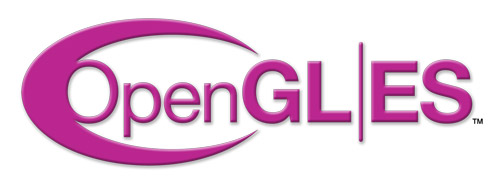Khronos Launches OpenGL 4.3 and Open GL ES 3.0 Specs
Khronos today released the latest specification updates for OpenGL and Open GL ES.
Coinciding with the SIGGRAPH conference, the 2D and 3D graphics API introduces several new features about 20 years after the initial release of OpenGL.
Besides the GLSL 4.30 update to the OpenGL Shading Language the specification covers compute shaders that support GPU parallelization, texture parameter queries, ETC2 / EAC texture compression, texture views without duplicating the texture data itself, indirect multi-draw, improved memory security, as well as a multi-application robustness extension. Khronos said that the 4.3 specification was largely based on developer feedback.
Also released was OpenGL ES 3.0, which pulls features from OpenGL 3.3 and 4.2 to bolster 3D functionality on mobile devices. Specifically, OpenGL ES 3.0 includes a better rendering pipeline to accelerate certain visual effects, ETC2 / EAC texture compression, an update to the GLSL ES shading language with full support for integer and 32-bit floating point operations, as well as set of explicitly sized texture and render-buffer formats.
Contact Us for News Tips, Corrections and Feedback
Get Tom's Hardware's best news and in-depth reviews, straight to your inbox.

Wolfgang Gruener is an experienced professional in digital strategy and content, specializing in web strategy, content architecture, user experience, and applying AI in content operations within the insurtech industry. His previous roles include Director, Digital Strategy and Content Experience at American Eagle, Managing Editor at TG Daily, and contributing to publications like Tom's Guide and Tom's Hardware.
-
antilycus I love me some OpenGL and parallel processing. Memory addressing is a stinker though.Reply -
idono john_4Where are all the MS DX fanboys who always claim how great the proprietary Direct X is and that Open GL never gets updates. MS use to support Open GL back in the early XP days until Linux games started showing up at brick and mortar stores.Reply
DX is great. It is currently better than Open GL in many ways. I'm not saying this because i'm fanboy but because DX actually has surpassed Open GL. It's a shame Open GL isn't updated more frequently. -
jhansonxi idonoDX is great. It is currently better than Open GL in many ways. I'm not saying this because i'm fanboy but because DX actually has surpassed Open GL. It's a shame Open GL isn't updated more frequently.OpenGL is updated yearly at the minimum: http://en.wikipedia.org/wiki/OpenGLReply
DirectX updates are usually tied to specific Windows releases. -
Usersname ReplyCoinciding with the SIGGRAPH conference, the 2D and 3D graphics API introduces several new features about 20 years after the initial release of OpenGL.
Bit like DirectX then...15 years to get stable and five years adding useless useful features. Eye-candy does not a good game make. Devs should use OpenGL, then they run their games/apps anywhere. -
NapoleonDK I can't wait to watch the explosion of activity about to surround OpenGL now that Valve is tinkering with it on Linux. The speed increases they got on L4D2 after polishing it up for Ubuntu were just amazing! :) OpenGL is going to come back with a vengeance!Reply
